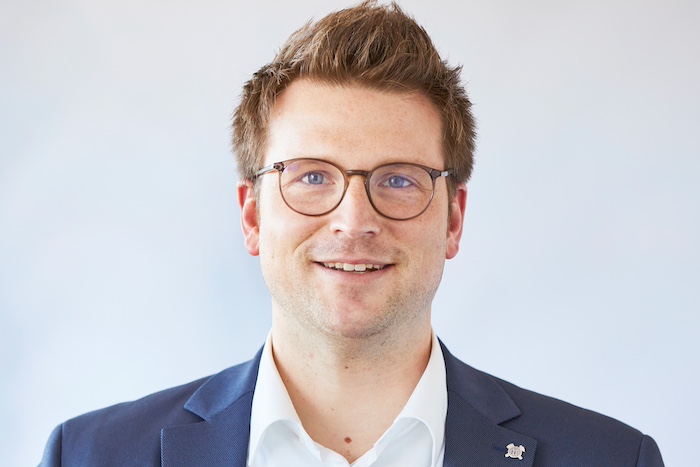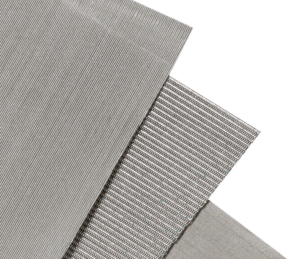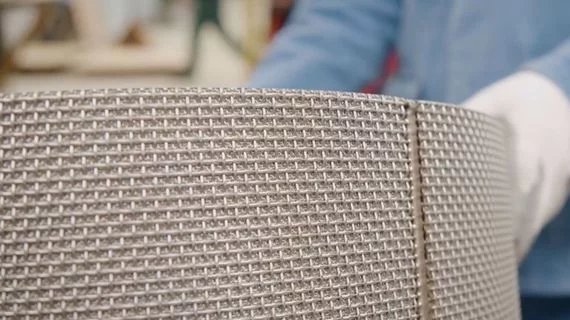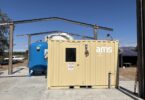As the global demand for clean water intensifies, so does the necessity for innovative filtration technologies. From wastewater treatment plants to household appliances, precise and reliable filtration systems are critical for addressing today’s water challenges. To explore how advanced filtration solutions are evolving, I spoke with Tim Gerdes, Business Development Manager at Haver & Boecker Wire Weaving Division. This leading German company, with a legacy stretching back to 1887, specialises in woven wire mesh and has played a pivotal role in the filtration industry for over 135 years.

Tim Gerdes, Business Development Manager at Haver & Boecker Wire Weaving Division
Haver & Boecker began as a wire cloth producer in Hohenlimburg, Germany. Today, it has become a global leader in woven wire cloth, serving industries as diverse as aeronautics, automotive, and medical technology. The company’s wire mesh solutions are indispensable in sectors that require precise filtration, particularly in water treatment. According to Tim, Haver & Boecker’s focus has always been on developing tailored filtration solutions that meet the specific demands of each application.
Versatile Filtration for Diverse Applications
Haver & Boecker’s wire mesh is utilised in various filtration contexts, ranging from coarse water filtration to ultra-fine particle retention. Tim highlighted that the company’s mesh can filter down to 5 microns, effectively capturing microplastics and other fine contaminants. This versatility allows their wire mesh to be integrated into desalination systems, wastewater treatment plants, sewage treatment plants (STP), effluent treatment plants (ETP), and domestic water filters. “We are everywhere,” he said.
The rise of microplastic pollution, intensified by everyday activities and industrial processes, has heightened the need for advanced filtration. “The water pollution by microplastics is a critical issue,” Tim explained. “Our filters can retain even the finest particles, contributing to cleaner water and a healthier environment.”
The Advantages of Metal Wire Mesh in Water Filtration
One of the key strengths of Haver & Boecker’s wire mesh is its combination of durability and precision. The mesh is designed to maintain uniform pore sizes, ensuring consistent filtration performance. Unlike traditional depth-filter media, which can have varying pore sizes, wire mesh offers a more predictable and reliable filtration process.
This characteristic is particularly beneficial for industrial applications, where process reliability is paramount. Tim pointed out, “Wire mesh is a surface filter, which enables easy cleaning and thus ensures a longer service life. This makes our mesh more sustainable, as it can be reused and backwashed, unlike many disposable filter media.”

High-Performance Materials for Challenging Conditions
Haver & Boecker’s expertise in material selection plays a crucial role in the effectiveness of their wire mesh. The choice of stainless steel, or other corrosion-resistant alloys, ensures that the mesh can withstand harsh conditions, such as those found in seawater desalination. Modern development methods and production processes enable customised mesh and filter designs that are perfectly adapted to the respective application.
“We work closely with our customers to understand their needs,” Tim stated. “Our goal is to provide solutions that enhance efficiency, reliability, and sustainability in water treatment processes.”
Applications Across the Water Treatment Spectrum
Haver & Boecker’s filter mesh can be found in a wide range of water treatment systems. In industrial settings, it serves as a protective pre-filter for reverse osmosis membranes, preventing clogging and damage from debris. The mesh is also used in domestic settings, like dishwashers and washing machines.
In larger-scale operations, such as wastewater treatment plants, Haver & Boecker’s filter mesh is employed in drum filters and filter panels. Its ability to perform well under pressure, maintain stability, and be easily cleaned makes it a preferred choice for operators looking to reduce maintenance costs and environmental impact.
Haver & Boecker’s Role in Optimising RO Systems for Efficient Seawater Desalination
In drought-stricken regions, seawater desalination plays a crucial role in ensuring a fresh water supply, though it comes with challenges – most notably the large volumes of brine produced, which are returned to the ocean. Despite this, desalination remains essential, particularly through reverse osmosis (RO) systems, which have surpassed energy-intensive thermal distillation methods in popularity.
RO systems rely on a multi-step process: pre-treatment, the desalination process itself with semi-permeable membranes, and post-treatment for water quality stabilisation. Effective pre-treatment is critical, especially when processing contaminated seawater or brackish water. Tim explained that Haver & Boecker play a vital role by providing precision MINIMESH® S filter mesh for the pre-filtration stages, ensuring optimal performance and longevity of the RO membranes.

One woman, lady explorer and biologist taking a water sample in nature by waterfall alone.
Research & Development at Haver & Boecker
Tim highlighted the central role that research and development (R&D) play in advancing the filtration products at Haver & Boecker. “Our position as the leading manufacturer of wire mesh filters is a result from our unwavering commitment to pushing the boundaries of what is possible. We continuously refine and advance our own products, driven by a passion for excellence and a determination to remain at the forefront of innovation. By focusing on the needs and challenges of our customers, we ensure that our solutions meet the individual expectations.”
At Haver & Boecker, customer feedback is a key driver of their R&D efforts. By fostering long-term relationships with both customers and suppliers, the company can quickly adapt to market needs and offer tailored solutions. Their commitment to quality and innovation allows them to stay ahead of industry trends, making them the first point of contact for customers seeking advanced filtration solutions.
Sustainability and Innovation in Filtration
Sustainability is a cornerstone of Haver & Boecker’s philosophy. As Tim pointed out, wire mesh not only offers high filtration accuracy but also contributes to resource conservation. The ability to backwash and reuse the filters reduces waste and extends the lifespan of the filtration elements.
“Wire mesh is not only about filtration accuracy but about long-term sustainability,” Tim emphasised. “It’s an investment in efficient, environmentally friendly water treatment.”
Conclusion
Advanced filtration solutions like those developed by Haver & Boecker are essential. Their innovative wire mesh technology is paving the way for more efficient, reliable, and sustainable water treatment processes. With a strong focus on research and development, the company is not only responding to today’s needs but also anticipating future challenges, solidifying its position as a leading manufacturer of woven wire cloth in the filtration industry. As Tim aptly put it, their DNA—rooted in listening to customer needs and delivering tailored solutions—will continue to guide the company’s future advancements in water filtration.







